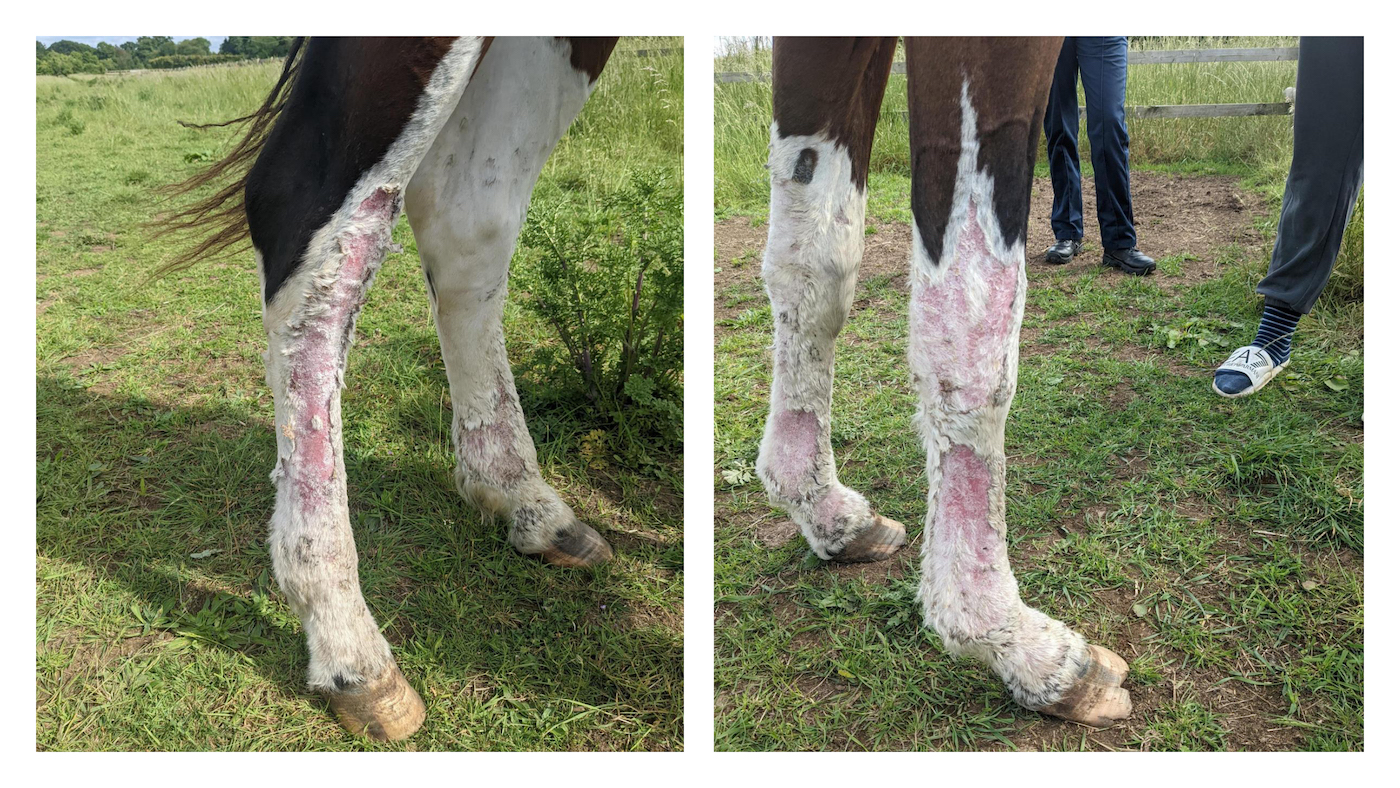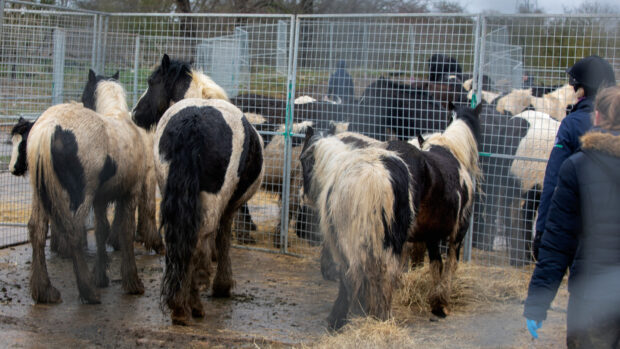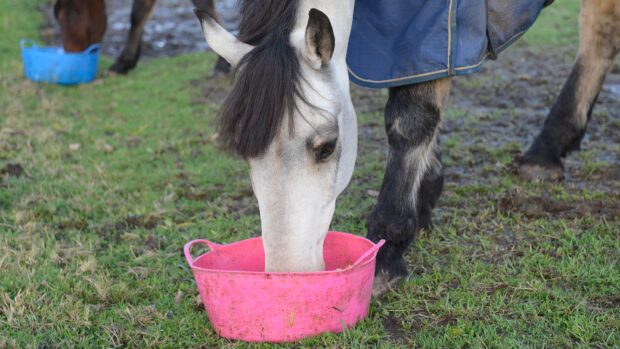The prosecution of a man who used coconut oil for his horse’s painful skin condition shows the need to seek veterinary advice rather than use home remedies.
Daniel Banham, 24, of Carters Hill Park, Reading, was banned from keeping horses for eight years, and given an eight-week prison sentence suspended for 12 months, at West Hampshire Magistrates’ Court on 6 December.
The RSPCA was called over concerns for the young horse, who had severe skin lesions. A charity spokesman said the vet who examined him was told by Banham “he thought it was rain scald and he used coconut oil on the lesions”.
The vet’s report stated: “This horse was suffering from the consequences of inadequate management, [which] led to dehydration, malnutrition, painful skin condition and severe liver disease that can have life-threatening consequences.
“He failed in his duty by failing to seek veterinary help for his horse’s very obvious and severe skin condition and concerning weight loss. His choice to apply coconut oil significantly increased this animal’s pain and suffering by conducting and amplifying the sun’s heat on to his severely damaged skin.”

RSPCA inspector Tina Ward said: “Our plea to all owners is to make sure animals always receive care and treatment from veterinary experts when they need it.
“Owning an animal is a privilege – and ensuring appropriate veterinary care is a key part of the responsibility we have towards them. It’s so sad that, in this instance, that responsibility was not met.”
In mitigation, it was said that Banham hoped his horse would get better but it did not, and that his culpability lay in failing to get a vet, and trying to solve the problem himself.
British Equine Veterinary Association veterinary projects officer Lucy Grieve told H&H any substance, including natural or herbal remedies, can cause damage.
“Some of our most powerful, sometimes toxic, medical ingredients have been derived from those found in nature,” she said. “The beautiful flowering foxglove contains chemicals that can affect the heart and other organs, deadly nightshade contains atropine, which can cause coma and death. Seemingly innocuous remedies, based on age-old recipes or ideology, can be misused and result in serious side effects, poisoning or even death.
“Medical professionals are trained to know how treatments may affect the patient, and where to find reliable, evidence-based information, with the aim of keeping the patient safe and maximising the chance of recovery. It is important we are sensible, logical and respectful of the treatment options we have and don’t take risky shortcuts by trying to use speculative treatments. We owe it to the horse to take proper veterinary advice to ensure medicines are used wisely, to help those who need it, to best effect.”
H&H vet Karen Coumbe added: “It is becoming an increasing problem that some horse owners unfortunately struggle to find the funds for veterinary care. This sad case demonstrates how important it is to provide proper care.”
You might also be interested in:

Sarcoid prosecution shows need for vet attention rather than using home remedies

‘You failed your animals’: woman filmed punching and kicking pony

Treatment in prison will be better than the care you gave animals, jailed pensioner told in horror farm sentencing

Subscribe to Horse & Hound magazine today – and enjoy unlimited website access all year round
Horse & Hound magazine, out every Thursday, is packed with all the latest news and reports, as well as interviews, specials, nostalgia, vet and training advice. Find how you can enjoy the magazine delivered to your door every week, plus options to upgrade your subscription to access our online service that brings you breaking news and reports as well as other benefits.




